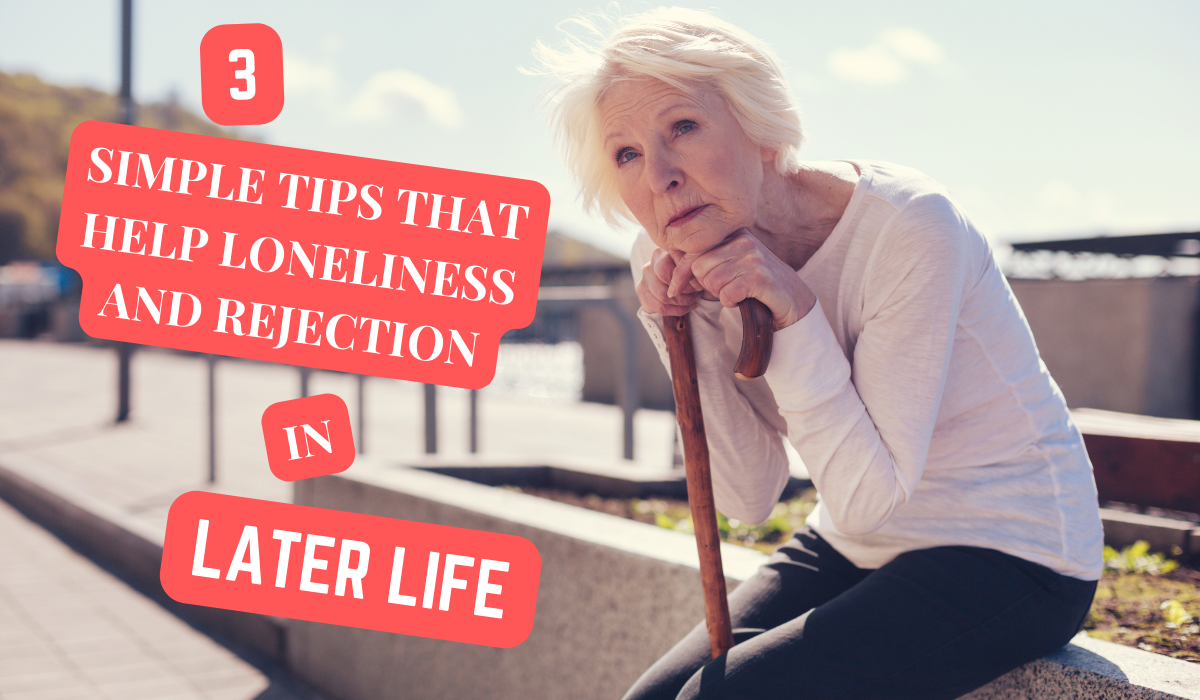
INTRODUCTION LONELINESS AND REJECTION
It starts as just another typical morning. After completing your regular daily chores, you sit down to enjoy your customary cup of coffee alongside your husband of 45 years. Suddenly, out of nowhere, he drops a bombshell. He turns to you and announces, “I’m leaving you. I have met someone else, and I want a divorce.” The words hang in the air, shocking and unexpected, turning a mundane morning into a pivotal moment in your life.
All sorts of thoughts and fears flash through your mind. “Why now? What did I do wrong?” Experiencing loneliness and rejection at any age is devastating; however, when it happens later in life, it can be profound and multifaceted, affecting the Emotional, Social, Financial, and Physical aspects of life.
INITIAL SHOCK AND EMOTIONAL TURBULENCE.
Initially, the shock of hearing that a long-term partner wants a divorce can leave you feeling destabilised and disoriented. After decades of marriage, the sudden prospect of ending this integral relationship is not just a logistical challenge but a severe emotional rupture.
- Grief and Loss: The departure of a long-term partner is akin to experiencing a significant loss, like a bereavement. Grief can encompass not only the partner’s loss but also your shared dreams and plans for the future.
- Betrayal and Rejection: Feeling betrayed or rejected by someone who was a central part of life for nearly half a century can lead to intense emotional turmoil. These feelings can undermine self-esteem and self-worth.
- Loneliness: You suddenly find yourself alone after decades of companionship, which can lead to profound loneliness. The daily interactions, shared experiences, and even the simple presence of another person are abruptly gone.
- CHANGES IN SOCIAL STRUCTURE
Couples often share friends and social networks. Unfortunately, this may become complicated or strained after a breakup. You might find yourself isolated or needing to navigate social settings that were once comfortable but are now painful or awkward. You may also have to navigate the new family dynamic of holidays and get-togethers.
FINANCIAL IMPACT
Dividing assets after so long can be complex and stressful. Significant lifestyle changes might occur if one spouse primarily depends on the other financially. The financial strategies set for retirement based on two people may no longer be viable, necessitating new plans for economic security and possibly delaying retirement.
PHYSICAL AND MENTAL HEALTH IMPACT
The stress when a long relationship ends can have significant physical effects, including sleep disturbances, changes in appetite, and increased susceptibility to illness. Increased risk of depression and anxiety is common, mainly as the situation forces an individual to reassess life at a stage when they expected stability rather than upheaval.
HOW TO REBUILD AND MOVE FORWARD – A CLIENT’S STORY.
These feelings of loneliness and rejection remind me of a client of mine.
My client was a lovely lady in her 60s who came to me for therapy after her husband of many years walked out on her.
My client was obviously in shock. She admitted that she knew things weren’t perfect in her marriage, but she never thought for one moment that they would ever divorce.
Just as we have discussed earlier, my client was experiencing feelings of great loneliness and rejection. She admitted, like a lot of other wives in her position, that it would have been easier if he had died, and she could mourn like any other widow. However, this was a different grief; her ex-husband was alive and well and living a life with someone else. The pain of rejection was so raw.
THE THERAPEUTIC SETTING
My first step as a therapist was to validate these feelings and provide a safe space for my client to grieve and express her anger. Acknowledging the pain and validating a client’s experience is crucial, allowing them to process their feelings without judgment. Therapy might also focus on coping mechanisms to help manage the immediate emotional crisis, such as mindfulness techniques, journaling, or simply offering a listening ear.
A GUIDE TO RECOVER STRENGTH AND CONFIDENCE AFTER A BREAKUP
The following is a THREE-STEP plan to rebuild and move forward:
- IDENTIFY COMMON CAUSES OF LONELINESS AND REJECTION:
A significant contributor to my client’s feelings of loneliness and rejection was her lack of a driver’s license, which made her dependent on family members for transportation. This dependency often left her feeling isolated and disconnected from others. Fortunately, she made the empowering decision to take driving lessons, realising that learning new skills and gaining more independence is always possible.
- THE POWER OF SELF-REFLECTION
Rediscovering Your Interests: Identifying activities that resonate with your current lifestyle after a divorce is a valuable process that can help rebuild your sense of self and enhance your quality of life. Divorce can be particularly disruptive, leaving you to redefine personal happiness and fulfilment on your terms.
Often, marriage and life responsibilities lead us to put personal interests on the back burner. Reflect on what activities brought you joy before or during marriage. Maybe you loved to paint, play an instrument, or were once an avid hiker. Consider revisiting these passions.
My client was a fantastic artist in her younger days. For the first time in many years, she could fulfil her lifetime ambition of going back to college to study fine arts. This decision not only allowed her to enjoy her gift but also allowed her to meet a whole new network of people.
It’s also beneficial to embrace solitude and find peace and contentment in your own company. Divorce can be a transformative experience. This transition period offers an opportunity to cultivate a deeper relationship with oneself, which is crucial for personal growth and emotional resilience.
Finding peace and contentment in solitude after a divorce involves nurturing oneself, cultivating personal interests, and maintaining connections with others. This journey towards embracing solitude is not about isolation but about discovering and appreciating one’s own company.
And finally –
- PRACTICAL TIPS FOR EVERYDAY CONFIDENCE
Setting small, achievable goals can be a powerful strategy to regain control and purpose. Small, daily goals not only provide structure but also contribute to significant long-term achievements.
Self-Care Practices: Maintaining physical and mental health after a divorce is crucial. Divorce can be a significant emotional drain, often leading to stress and neglect of one’s well-being. Engaging in self-care helps cope with the immediate impacts of such a life change and build a foundation for a healthier, happier future.
CONCLUSION: LONELINESS AND REJECTION
In conclusion, navigating the complex emotions of loneliness and rejection in later life is undoubtedly a formidable challenge, yet it also presents a remarkable opportunity for personal growth and rejuvenation. My client’s experience is a testament to this, as she went on to lead a healthy, productive life after her divorce, emerging more confident and self-assured than ever. The good news is that this path is open to you as well. Trust in yourself—remember, it’s never too late to learn new things or meet new people, regardless of age. With each new habit you form and every goal you achieve, you, too, can thrive and rediscover joy in this new chapter of your life.
DISCLAIMER
Any information provided by Linda M. Cowan is solely intended for informational purposes and is not a substitute for advice, diagnosis, or treatment regarding medical or mental health conditions. Although Linda M. Cowan is a Professional Accredited Therapist, the views expressed on this site or any related content should not be taken as medical or psychiatric advice. Always consult your physician before deciding about your physical or mental health.
The examples portrayed in this blog are fictitious and for illustrative purposes only. While they reflect typical client presentations, any resemblance to actual persons is coincidental.
https://sixtyandme.com/dealing-with-loneliness-and-rejection/
https://lindamcowan.com/healing-from-betrayal-trauma-life-after-infidelity



